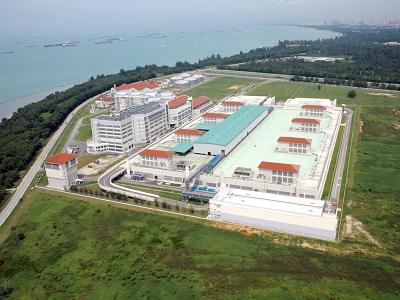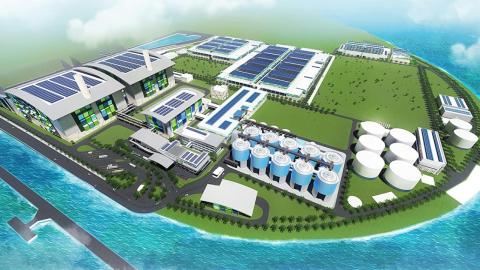
Unlike those who look back over recent years with a critical eye, Jacobs Vice President of Innovation & Technology, Europe Bryan Harvey enthuses that: “we’ve done some amazing things within the utility sector” – by and large, meeting the needs of society as they were set out in the U.K. 30 years ago. “But it’s time to recognize the needs of society are changing, and it is time to redefine the new social contract.” He lists population growth, climate change, altered asset conditions and step changes in the expectations of customers and the environment as among the critical drivers of change. He also points out that we now have better evidence than ever before on the scale of the challenge, including the independent assessment of needs contributed by the U.K.’s National Infrastructure Commission (NIC). He mulls: “It’s easy to blame the private sector [for not keeping up with the pace of change], but it’s not just companies that need to change. It’s regulators, government and society itself.”
Focusing on water specifically, Harvey acknowledges that on the back of reinvigorated regulatory challenge, the business plans companies have put forward for Ofwat’s 2019 price review (PR19) for water and wastewater provision in England and Wales, will go some way towards shifting the dial. “There’s no question that we’ve got to make the core business as efficient as possible and as resilient as possible, and that will be well determined by the PR19 process.” But to really deliver for society, he believes we need to go much further and take a broader approach.
Re-evaluating the value of water
First, we need to “look way beyond the five-year cycle, to 50 years and beyond and start planning for that future.” This is in keeping with the NIC view and suggests a path towards supply flexibility and long-term asset investment. “I’m not confident that we regulate on that basis, govern on that basis, or operate on that basis at the moment,” he comments.
Harvey elaborates that if water companies are really to reconnect with society, they need more latitude to respond to its needs. In a recent presentation [available for download below], Harvey drew a clear analogy that in the U.K., each of us use approximately one barrel of water a day (approximately 150 litres), for which we pay around $1. Oil by comparison costs $70 a barrel, petrol $190 and bottled water $130. On one hand, $1 a day is “a remarkable feat, a real feat of value”. But on the other, it begs the question: "What's the value we're placing on water? Is $1 a day really the appropriate value? What is the true cost if we were to lose that water supply to the city, to the population, to the industries, to the farmers and environment, each and every one of us would be impacted in some way. So really, are we valuing, are we putting water at the heart of everything we do as a society, because it is critical we do.”
Drawing on Jacobs' global experience, Harvey argues that more and more places around the world are re-evaluating the value of water to life and society – from Singapore and Australia, to the west coast of the U.S. and Bangalore. “In these places, water isn’t an afterthought, it’s seen as a strategic resource for the long term,” he observes.
A related point Harvey makes is that refreshing the social contract provides an opportunity to look anew at funding models. He offers in illustration that PUB, Singapore’s National Water Agency, part funded the development of a major deep tunnel sewer by freeing up land that housed large conventional sewerage treatment works. “Admittedly this wouldn’t be suitable in all circumstances but could for example be part of master plans for cities.”
Jacobs is currently providing professional engineering services for the detailed design and construction supervision of the Tuas Water Reclamation Plant (WRP) part of the Deep Tunnel Sewerage System (DTSS) Phase 2 project. Jacobs worked with PUB to conceptualize the DTSS in the mid-1990s and served as program manager for phase 1 of the project, covering the eastern part of Singapore. Phase 1 was completed in 2008 and included the major Changi WRP. DTSS phase 2 will collect, treat and recycle used water from the western and southern parts of Singapore, with Tuas WRP being the largest and most complex infrastructure project to be implemented under this phase of the project.
Discover how PUB and Jacobs turned Singapore’s water vulnerability into an opportunity to pilot new technologies and innovative solutions – serving as an international model for water management that extends across all facets of the water cycle to create a sustainable legacy for years to come.
Putting digital at the heart of society
Harvey also says we need to look "way beyond water" and consider societal needs holistically rather than in silos. He sees the digitization of society as a major opportunity to break down traditional boundaries, to enable different sectors and actors to work together better for the good of all. He offers some examples.
“Could we, for instance, link the water sector to the social services sector better so water companies could play a greater role in catering for the ageing population?” he questions. He explains that smart water data could be used to indicate the wellbeing of vulnerable customers – if a person does not follow their usual pattern of filling the kettle in the morning or flushing the toilet, that could raise a care alert.
At the other end of the scale, smart assets could automatically adjust according to weather conditions (storm tanks could empty ahead of forecast rain, for instance) and smart data could underpin a better-connected planning system that holistically considers flooding, drought and network capacity.
-

Changi Water Reclamation Plant (Changi WRP) treats used water
-

The advanced Tuas Water Reclamation Plant will receive used water flows from the western part of Singapore
-

Naturalizing Kallang River at Bishan-Ang Mo Kio Park
Referring back to current work in Singapore where use of 6D BIM is being used for connected, smart asset management, the opportunities of the future start to unlock. With funding from National Research Foundation (NRF), PUB collaborates with Jacobs to co-develop a digital twin of Changi WRP. The virtual replica of the plant will provide unparalleled insight into the ongoing operations and maintenance of the facility, supporting increased productivity and enhancing operational resilience.
"Let's put digital at the hear of society, of utilities and social services,” Harvey urges. He adds that at present, infrastructure sectors are somewhat “lagging” behind the likes of Amazon, Apple and Google in seizing new digital opportunities.
On the U.K. Harvey says: “What we need to really focus on now is to agree what our national water strategy is, establish either a body or a person that’s going to lead delivery of that water strategy and really draw alignment of energy, resources and investment going forward. Most importantly, get started, because…time is against us, time is running out.”














































